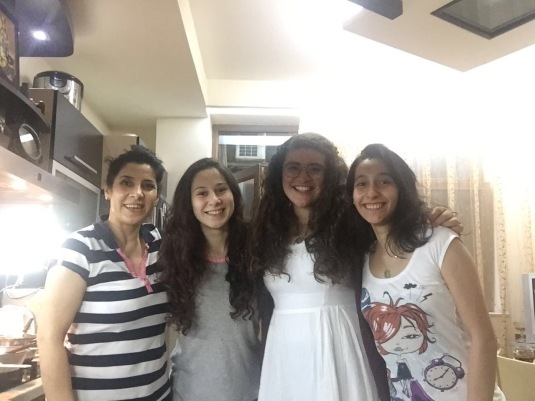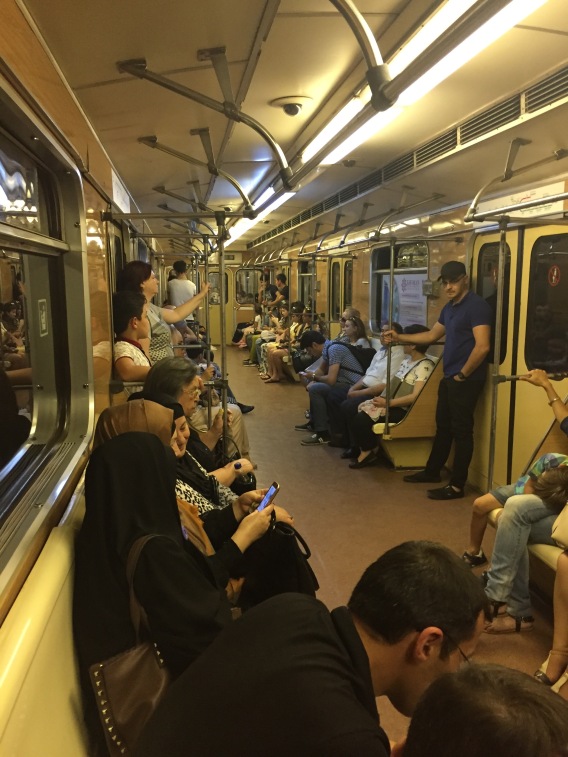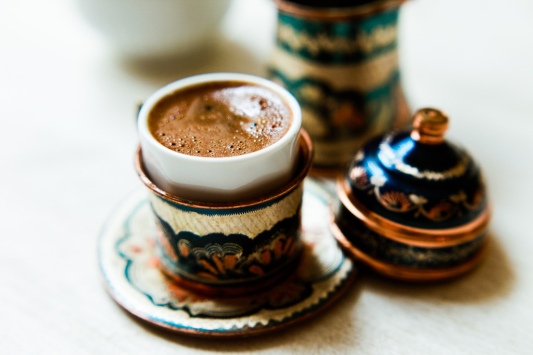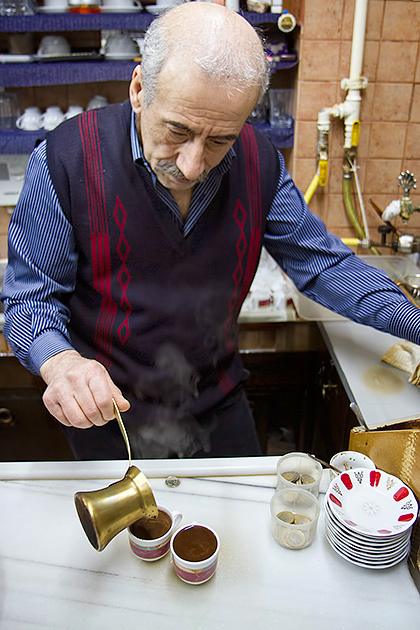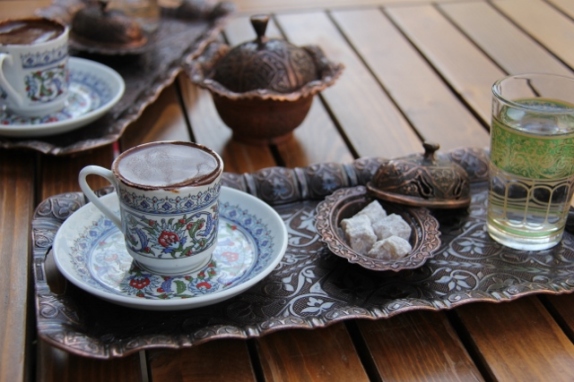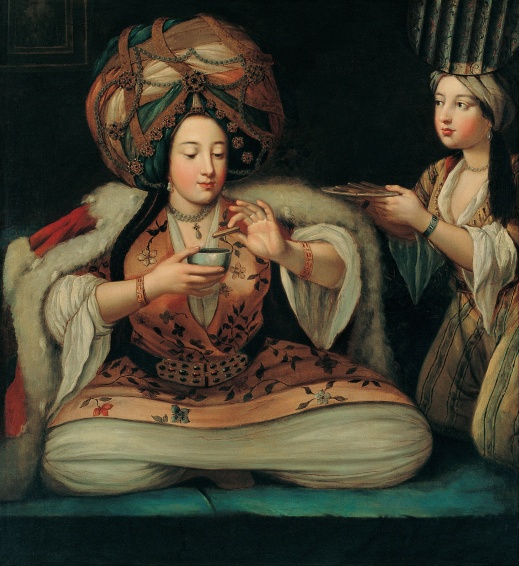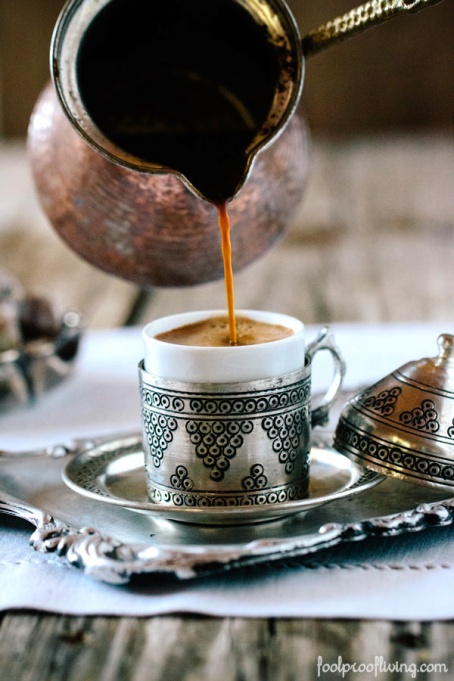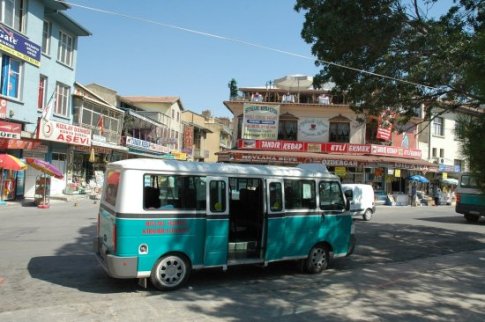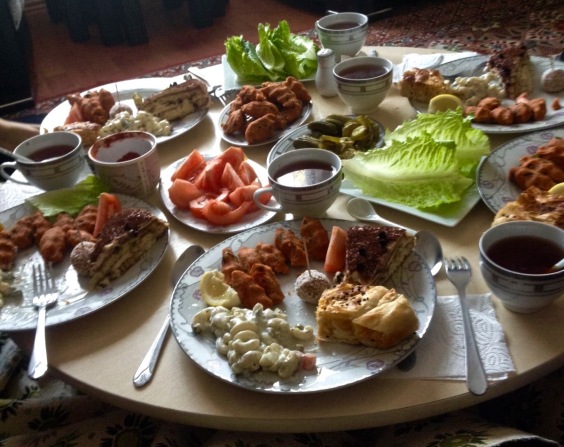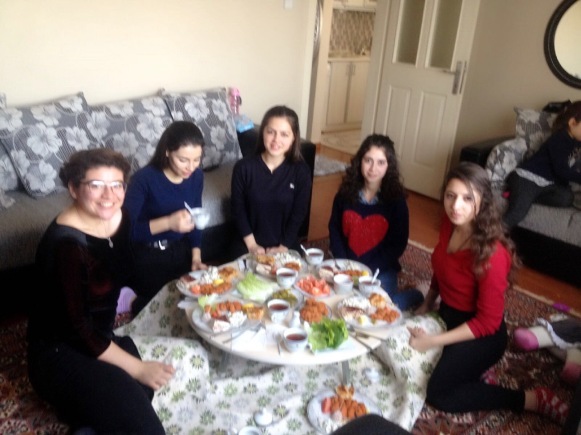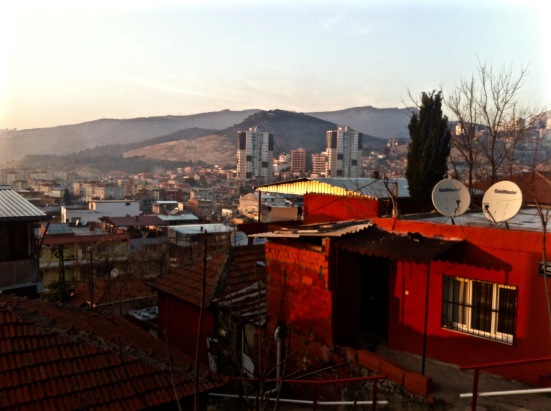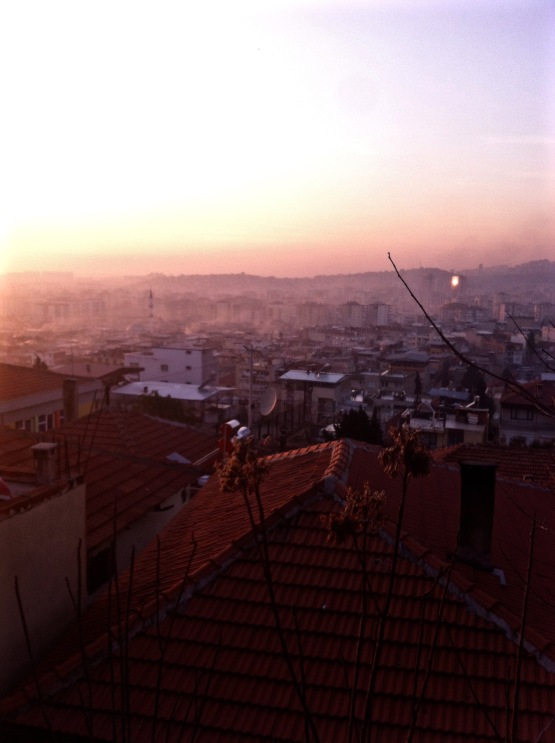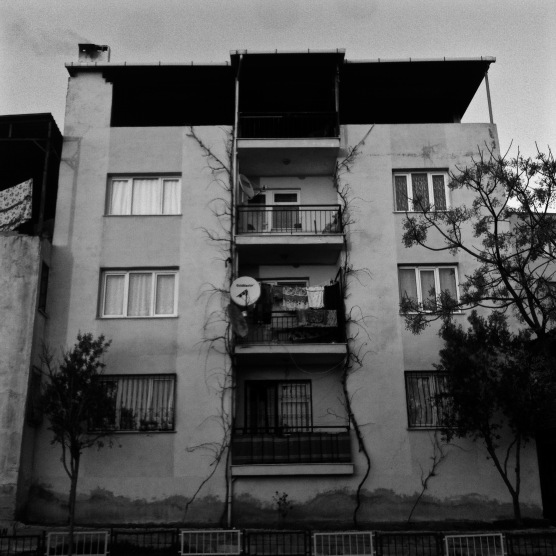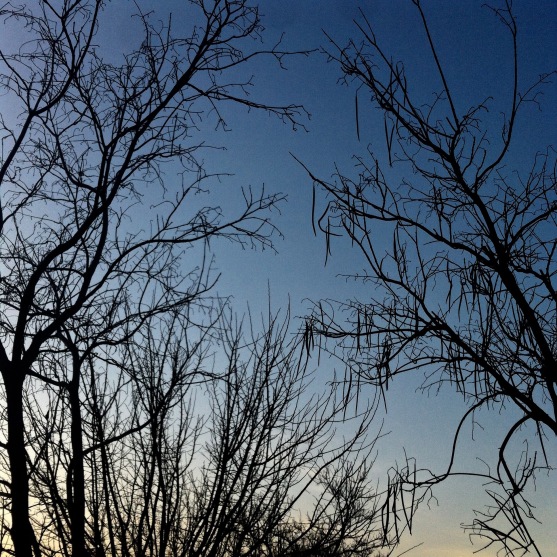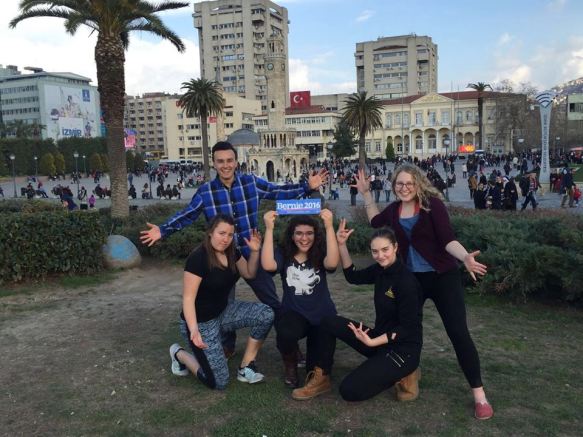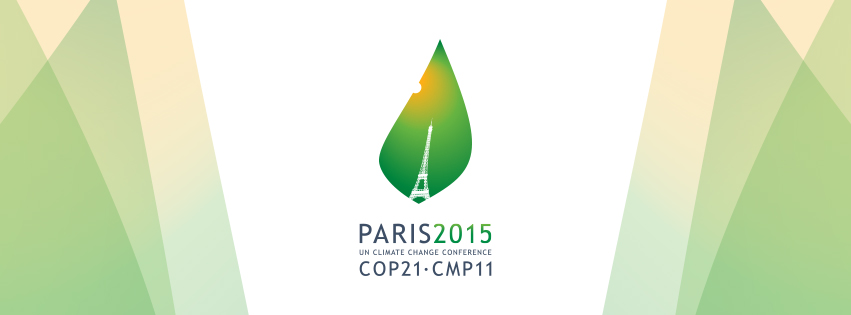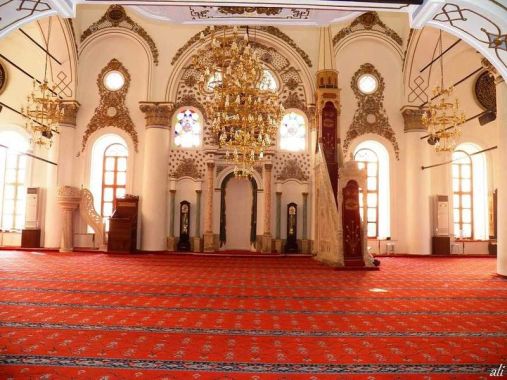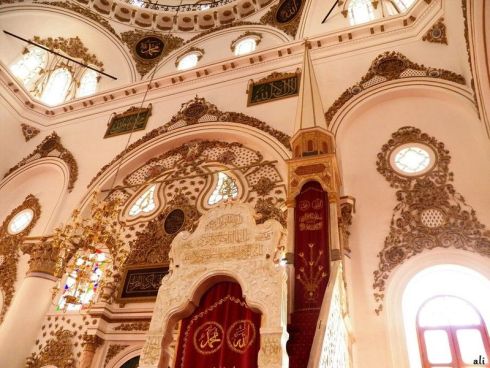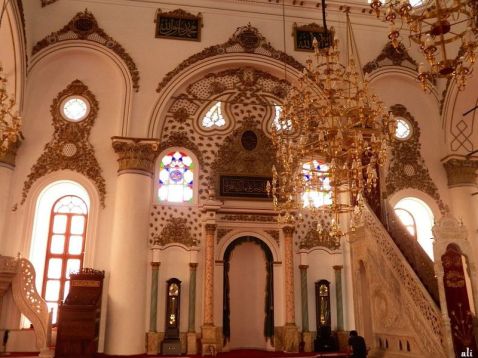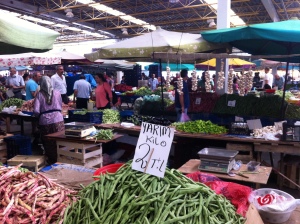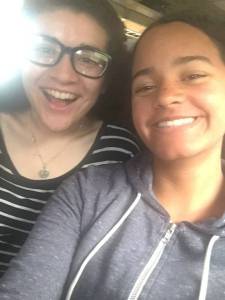For my first trip out into the regions, my host family and I traveled up to Quba (say it right! This ain’t Havana folks!) for the Ramadan three day holiday. I really had no idea what to expect, so I did what usually works best and tried not to expect anything. This blog post will be as holistic of an account of the two day whirlwind from which I have just returned.
On the Road
Not twenty minutes outside of Baku, the road begins to be dotted by sights that seem outrageous to my oh-so foreign eyes but are apparently the bread and butter of Azerbaijani roadside shenanigans. I see a biker — helmetless, of course — chugging along the shoulder of a highway, which is already enough to qualify as a suicide mission if you ask me, but on top of that he had some white headphones which must have been projecting the soundtrack of death into his ears. The audacity. I will give Azerbaijani bikers this — whenever I’ve seen bikers at night, they usually have adorned their bike with a minimalistic dim light, but a light nonetheless. I recall the terrifying night drives that my family and I took during our trip to Nicaragua in January, in which there were many last second swerves that gave us heart attack upon heart attack, but the lightless bikers seemed perfectly content to pedal on the tightrope of death.
An hour passes by. The landscape gradually puts on some slope, but is still extraordinarily arid. Of the world’s eleven climate zones, Azerbaijan remarkably hosts nine of them. The first hour of the drive, the highway hugs the Caspian Sea and I’m treated to a view of the aquamarine water, only a few shades darker than the sky above it. It isn’t windy or wavy at all. In fact, the utter stillness of the sea is a bit unsettling. The world’s largest lake has a calm temper it seems.
One of the traditions to celebrate the end of Ramadan is to sacrifice a lamb and distribute one third of its meat to neighbors, one third to the poor, and the last third you may keep for yourself. Speaking to my host mother about this, she reflected on the difficulty of practically fulfilling the task of distributing one third of the meat to the poor. Institutions that might seem like likely candidates, i.e. orphanages, hospitals, homeless shelters, all receive food from the government and from what I inferred, do not accept meat donations. Walking up to the doorstep of a unknown family in a poorer neighborhood is not a viable option, my host mother tells me, because they will refuse the meat and in fact become offended that they were the deemed the recipients of charity. Poverty will never negate pride.
With this is mind, ’tis the season to sacrifice. My family fulfilled our sacred duty last weekend, and for the first time in my life I witnessed the entire meat production process, pen to plate. To tell the truth, I was more fascinated than anything watching my host grandmother slice the liver of an animal that a few mere hours ago I had seen standing and breathing. I know my American, especially my vegetarian American readers, are feeling squeamish as they read this. I am not here to judge any lifestyle or practice. I do see the value in witnessing your food so that in its passing you gain an appreciation for the life that was sacrificed and the myriad of effort from its caretaker, from the food that was grown for its sustenance, from the sun and the moon, from God if you so believe, that all contributed to the life of this animal. Now the death of this animal contributes to the life of us. Think of it what you may, but I find it quite incredible.
Back to the road. About an hour and a half into the drive I began seeing men skinning the sacrificial lamb on the side of the road. I gawked. I turned to my host sister to make sure she had seen what I had just seen. It’s one thing going through an entire day long process of sacrificing the lamb, visiting the mosque, and preparing the meat as my family did. But on the side of the road? What goes through the minds of people who stop and buy the freshly skinned lamb? Sunglasses, shampoo, sandals, did I forget anything? Oh wait, the sacrificial lamb! Pull over, pull over!
I fell asleep for what could only have been half an hour and the next thing you know, we’re in Quba. There was nothing particularly remarkable about our arrival. The town frankly looked like a bigger version of the dozen villages we had passed through to get here. Paved main road with an irrational number of furniture stores, men leaning against cars talking to each other but mostly staring out at the road, and cars competitively, almost coquettishly (?!) navigating the laneless road. We soon turn right off onto a side road and start searching for our relatives’ home. The family we visit are relatives of my host grandmother’s deceased husband, though beyond that I could not tell you anybody’s relation to anybody. My host uncle tried to explain it to me, but I stopped him midway and said that unless we were going to break out the pen and paper and draw a family tree, his valiant effort was in vain. “Qohumlarıq (we’re relatives),” I smile and nod, “that’s all that’s important.”
Arrival
Hospitable is too weak a word. Even the Azerbaijani word, istiqanlı, which literally translates to hot-blooded, feels like an understatement. When we first arrived at the house, there was an initial moment of confusion. Who’s this girl? She’s our guest, from America. But she looks like our girls? Ask her yourself, she understands you! And thus the American cat was out of the bag and the onslaught of kindness began. Not to imply that the kindness was as a result of my Americanness, but my foreign-ness was undoubtedly a rarity in the household. I overheard a young boy whisper to his mother that he had never heard an American speak Azerbaijani before. One of the men, who was absolutely lovely and gave me Azerbaijani jazz music recommendations because he himself was a professional jazz pianist, told me that I was the first American he had ever interacted with. The curiosity and kindness that was shown to me I will never forget. How can I explain it? I can’t. I can only describe it. I walk in and am immediately offered a seat, given a bowl of cherries, a plate of yarpak dolması, fresh yogurt, and tea. Old eyes, young eyes, freckled faces and wrinkled faces all look at me as if I am of an entirely different species. Well, in regards to the life that I live, it isn’t too much of a stretch to say that I am of an entirely different kind. My privilege is conspicuous. At twenty years old, I have traveled the world. I have received an excellent education, of the fifteen years of it, fourteen have been provided to me free of cost. I attend a prestigious college, and I study what I’m passionate about. I have a home in a beautiful, impossibly expensive city, and I have parents with stable jobs who support me. My future is a blank canvas on which I choose what colors, shapes, and layers to paint. My privilege is conspicuous. Despite the differences between our two realities, the ease with which we form a relationship with each other is like water. I take to them, and they take to me. Talking with the relatives, both young and old, reinvigorates my desire to document life histories. The wealth of community knowledge is unimaginable.
After spending a few hours at the house, my host mother, grandmother, and sisters took a drive first to the Quba cemetery where the family’s ancestors, on both sides, are buried. Men wearing the taqiyah, or skull cap that some Muslims wear for religious purposes, were walking around, prepared to provide their service of reciting Quranic verses in Arabic for families visiting their deceased loved ones. My host grandmother had one such man recite such prayers for her brother, mother, and grandmother. Unlike anything that I’ve seen in the United States, most graves in Azerbaijan have images of the deceased on the tombstone, some of just the face, but most have full body images. It was very moving, if eery, to have the face of the buried two dimensionally projected to full size in front of the visitor. The images brought a degree of vividness to the lives lived that I have not experienced in any other cemetery.
After paying respect to the family ancestors, we drove to a famous forest right outside the city of Quba, and the tree cover become so thick that next to none sunlight made it through the canopy. I had been told by friends in Baku that Quba’s nature was gorgeous, and their impression soon became my impression as well. We stopped by a qutab (thin lavash bread with meat or greens inside, cooked in lots of yummy oily butter) place in the forest to have a bite to eat, but my host grandmother was not having their cleanliness standards, so we drove back into Quba and were recommended a place to eat. On route to the restaurant, my host mother asked for direction from a man on the street and not only did he give us directions, he jumped in his car and personally escorted us to the restaurant, testament to the outrageous kindness of random strangers here in Azerbaijan. The qutab was delicious as promised, and afterwards we returned to the relatives’ house for another round of tea. I become quite good playpals with Kemalə, a three year old girl who can only be described as feisty as hell — she’s got attitude and I love it! When we left the relatives house for a different relatives house where my host sisters Fizza, Jala, and I were going to spend the night, I was running low on energy, but Kemalə could have easily gone a few more hours, I’m sure of it.
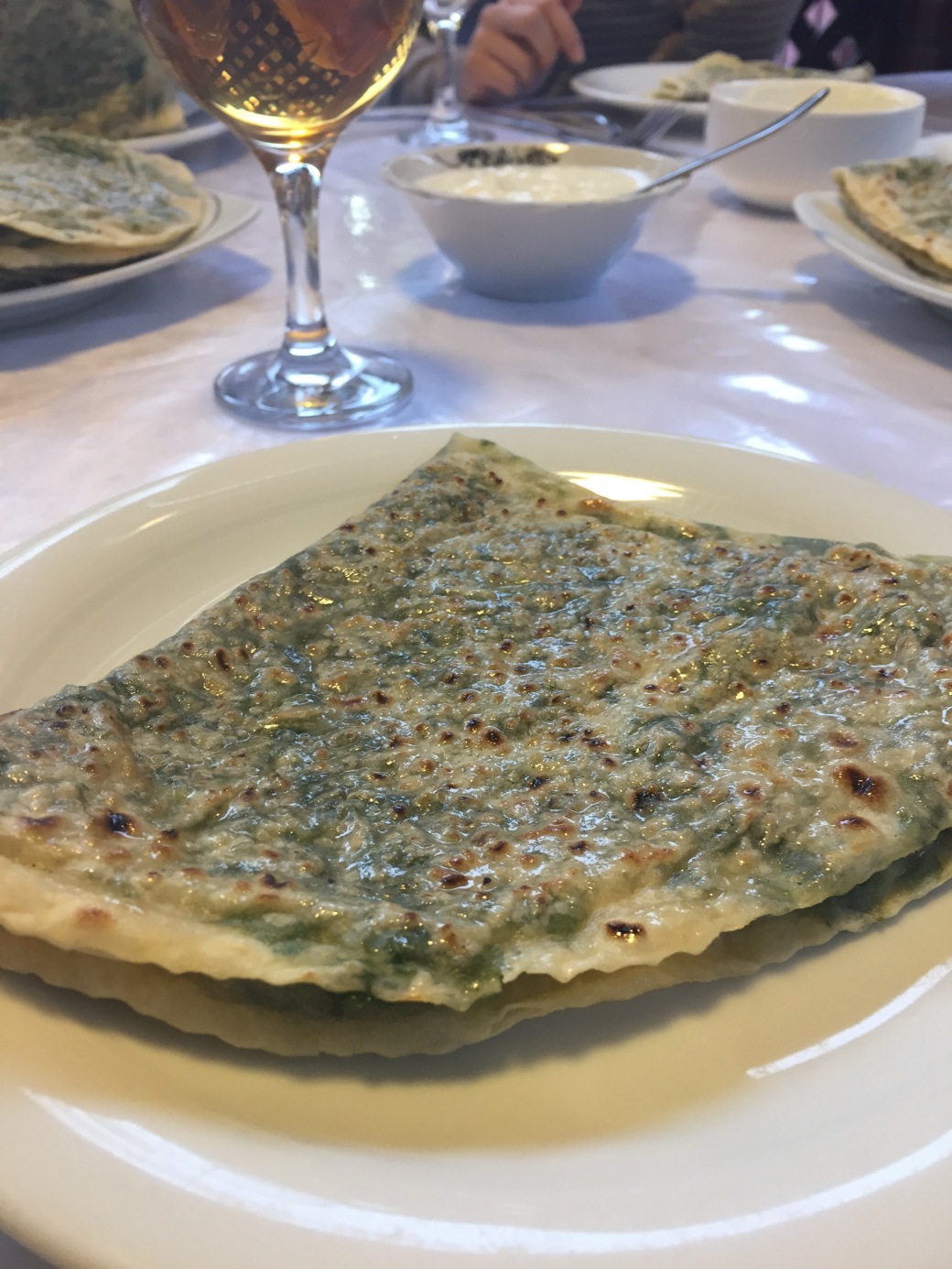
Qutab
We spent the night at Zeyneb and her mother’s place, which was extraordinarily clean, as are all houses I visited in Quba. The relatives all seemed to be quite amused by my amazement at the cleanliness, but it truly was remarkable. Especially juxtaposed to the street outside, which wasn’t by any means filthy, but was certainly had its fair share of litter. The resident director for the CLS Azerbaijan program here, David, who served as a Peace Corps volunteer in Azerbaijan shared his take on why there is such a disparity between the cleanliness of homes and apartments and the relatively unkempt stairwells, streets, parks, etc: he believes that this is a consequence of a Soviet attitude, in which the state was expected to take care of public property and ensure its cleanliness. However, after the Soviet Union fell apart and the state was dissolved of that responsibility, no one took it upon themselves to keep public places, streets, stairwells, and the like up to the old standard.
When we arrived at Zeyneb’s house for the night, we were offered fresh watermelon, midnight snacking Azerbaijani style. While everyone else was offered slices of watermelon, I had the privilege to scoop my watermelon out with a spoon myself, and I was informed this was how the nene’s (grandmothers) of Quba did it. Honored to carry on the tradition. We stayed up until about 1 am, dancing salsa (I dance a lot of salsa in Azerbaijan!), talking, and eating. I thought I was full, but then Zeyneb’s grandfather came home from the working at the bakery and brought two still-warm loaves home with him. And the eating continued. I had some delicious Quba village cheese, tomatoes, and cucumber with the fresh bread and finally called it a night.
Day Two
Little did I know what I was in for. After waking up around 9:30 and having breakfast (bread, shor goghal [a salty breakfast pastry], tea, tomatoes, cucumber, and Quba cheese) we went out to the garden and marveled at the fruit trees. Never have I picked a cherry directly from the cherry and plopped it into my mouth, but it sure is a great feeling. What at first appeared to be a flourishing bed of weeds soon revealed its true nature as a mint patch gone wild! What a life, picking cherries and mint leaves from your own backyard.
We returned to the original relatives’ house before setting off on our adventure. First stop: Qırmızı Qəsəbə, translated as Red Village. This place is a real trip. It’s considered to be the world’s only surviving pre-Holocaust Jewish settlement, and the only all-Jewish settlement outside of Israel. The inhabitants are known as Mountain or Highland Jews, and in 1742 were given permission by the Muslim Khan of Quba to build a settlement on the other side of the Qudiyalçay River. They speak their own language called Juhuri, which is a form of Persian due to the fact that most of the Jews who live in the town have their ancient origins in Persia, and most residents speak Russian and Azerbaijani as well. In this northern corner of Azerbaijan there is an incredible example of religious pluralism, with Muslims (to this day) living on one side of the river, and Jews on the other; there is a bridge connecting the two sides and there are strong economic ties between the two towns. While the town used to boast a population of around 20,000, after the collapse of the Soviet Union there was a mass emigration and the current population estimates hover around 3000 people. If it were not for the wealth that comes back to the town from wealthy Jewish Azerbaijani expats living abroad in mostly Russia and the United States, Qırmızı Qəsəbə would not have survived until the year 2017. There is no industry in the town, and there is no real reason for young people to stay. The future is not very bright, but the present is fascinating nonetheless. Though clearly written from a partisan standpoint, the Times of Israel put together an interesting piece on Qırmızı Qəsəbə for those interested in learning more.
Next stop, Şahdağı. Easily one of the most beautiful place I’ve ever been to. Slowly but surely, we drove up the slopes of this heavenly alpine giant. While we still had a good view of the distant mountain, we pulled over and took some pictures with some grazing sheep. I think I was a shepherd in a past life, because the bliss I experienced wandering among those sheep, breathing crisp mountain air, its a sweet life. We eventually made it to the town of Laza, tucked between the slopes of Şahdağı, and, well, I can’t describe it. Looking back at my pictures, they don’t do it justice either. As Laza first came into sight, all I remember thinking is: I need to spend time here. Doing what, Allah bilir (God knows). But I will come back to this place. There’s a waterfall that attracts many Azerbaijanis on holiday, and we made the little trek up as well and got our obligatory waterfall picture. My sister Jalə and I were adventurous enough to take our shoes off and wade around in the surprisingly cool water; I was told it would be icy, but it was far from it. Compared to my adventures in the High Sierra, this was absolutely swimming temperature water.
A full day of adventuring under the sun was starting to get to us, so we started making our way back to Quba. On the way, we stopped and had a delicious linner (lunch + dinner) of xınqal (square pasta like pieces covered with ground beef, caramelized onions, and yogurt) and düşbərə (Azerbaijan’s national dish, vaguely resembling ravioli but in a soup…delicious).
When we arrived back at the relatives’ house, I was exhausted. I sat down next to some of the older women, hoping to spend our last hour having some laid back conversations before our two and a half hour drive back to Baku. Of course, laid back situations simply do not exist here in my life in Azerbaijani. Next thing you know, I’m having a brilliant conversation with a young man — also our relative, of course — who I mentioned before, is a professional jazz pianist, specializing in mugham-jazz fusion music. Wow. I’m in heaven. He gave me some recommendations for live music in Baku and talked about his experience as a musician in Azerbaijan. Truly icing on the cake to a near perfect two days. The time finally came for goodbyes. One of the uncles gave me a rose, a Quba rose, as he told me, and it now has a permanent place in between the pages of my journal. My host mother, laughing, pulled me to the car because if she hadn’t, I would have been saying goodbyes for the next hour. We gave some of the Quba gals a ride over to a clothes store on the main street, and then got on the road back to Baku.
Next, I have a real treat for you all! A note that I wrote on my phone, a glimpse into my mindset in real time rather than reflection. Here it goes:
As we drive back to Baku, I see a donkey nibbling on some vines curled around a chain link fence and I suddenly realize that I love this country. A few moments later, I’m greeted with a deep green, mountain silhouette horizon under a faded pink, polluted blue horizon, and the feeling is confirmed. I’m thankful for this moment of clarity. It’s not often in life when the heart feels sure about anything. This trip to Quba has restored my faith in the beauty of humanity. It has taught me that when one falls in love with a people, falling in love with place from which those people come is second nature. What seemed like a relatively mundane rural town when I first arrived 32 hours ago now feels like a place to which I have things, or rather, people to come back to. The Azerbaijanis that I met on this holiday could come from anywhere, the most unremarkable place imaginable, and I swear their kindness would act as a fertilizer on the land, imbuing the soil with a richness in stories and struggles, home to people with sparkling eyes and wrinkles, testimony to the fullness of lives lived.
10pm. We arrive in Baku. This trip was transformative, enlightening, and most of all, outrageously fun. To more adventures.


























